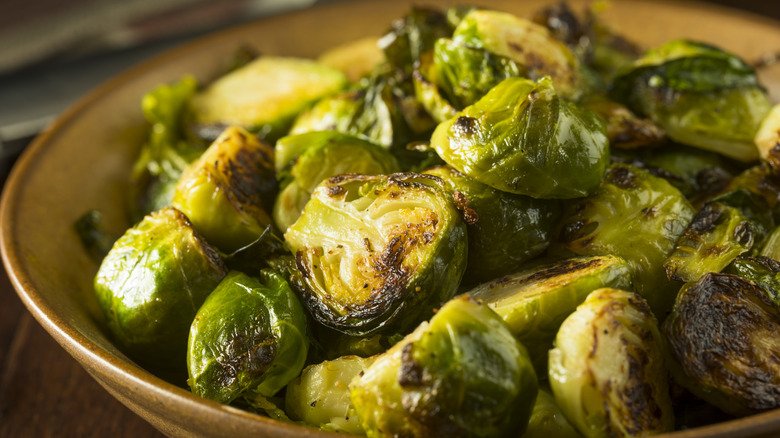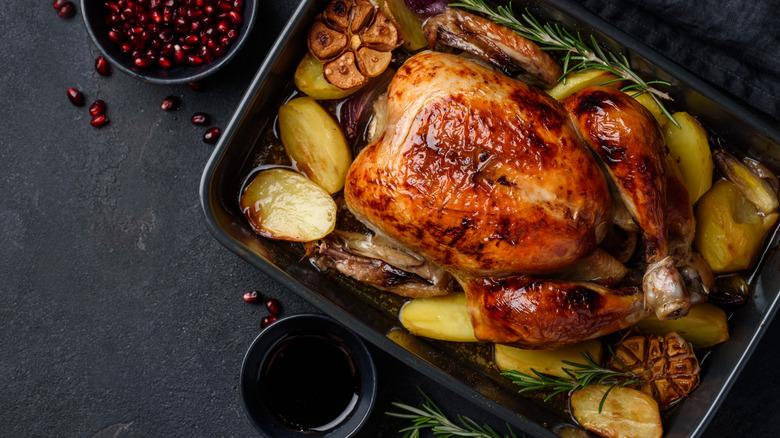Why You Should Add Sugar To Some Roast Foods
Roasting can turn a boring vegetable into something savory and delicious. Think Roasted Brussels Sprouts With Avocado and Maple-Roasted Carrot Salad. Sounds a lot more exciting than boiled Brussels sprouts or steamed carrots, doesn't it? While roasting comes naturally to some foods, others can use a little help to bring out their best flavors. That's where a sprinkle of sugar can play an unexpected role.
You may think that broccoli and sugar go together like shrimp and whipped cream, but in fact, sugar can be an enhancer for roasting when it comes to a variety of foods, from vegetables to meats. Some vegetables like carrots have a higher level of sugar and achieve that beautiful golden-brown color fairly easily. Other veggies, like mushrooms, taste amazing when caramelized but require a little TLC.
When roasting vegetables, it is the sugar that causes caramelization. My Food Data has ranked vegetables in two categories: vegetables with the most sugar and those with the least amount of sugar. Some of the items on the list are not that surprising, such as sweet potatoes as the vegetable with the most amount of sugar (up to 5.5% or 13.9 grams of sugar per cup mashed), and beets are listed second, with up to 13.5 grams of sugar per mashed cup. Here's how a vegetable's existing sugar will affect the roasting process.
Sugar is a natural meat tenderizer
Those with a higher concentration of heat just need a little oil or butter and heat and you've got a beautiful caramelized taste and texture. For those with lower sugar content, a little honey or sugar added to the pot can create caramelization. The intent with these added sweeteners is not to make your veggies sugary-sweet, but to encourage browning and to achieve that glaze.
Have you considered adding sugar to proteins? Next time you grill, add a little to your steak and you'll be pleasantly surprised at the tender, juicy results. Sugar serves as a tenderizer for meats, not as a sweetener. Epicurious recommends adding sugar to the rub or marinade for your meats, especially if it's one of the most popular, yet tougher and chewier, cuts of meat such as skirt steak and flank steak.
Korean cuisine uses brown sugar in the galbi marinade, a key ingredient for Korean street tacos. There's also classic Southern barbeque, which often uses brown sugar marinades to give the pork a melt-in-your-mouth tenderness. Cook's Illustrated takes another stance on adding sugar to meat. The sugar, they contend, has little effect on the texture, but does give meat additional flavor and aids in the browning of the skin (think your Thanksgiving turkey). Add sugar to the brine for next year's Thanksgiving bird to give you the golden, crispy skin of Hallmark movies.

